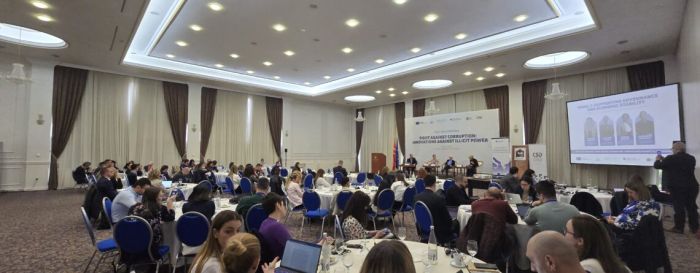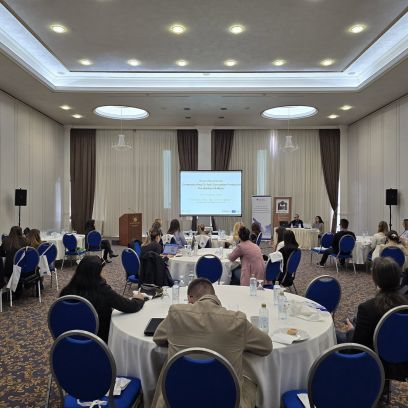As the Western Balkans move forward on their EU path, the fight against corruption remains central to democratic consolidation and institutional reform. The project “Civil Society for Good Governance and Anti-Corruption in Southeast Europe”, launched in March this year and supported by the Know-how Exchange Programme funded by the CEI Fund at the EBRD sponsored by Italy, aims to strengthen the role of civil society in promoting accountability, shaping policy, and engaging citizens in anti-corruption efforts.
Implemented by the Southeast Europe Leadership for Development and Integrity network through the Center for the Study of Democracy in Bulgaria, in partnership with the Macedonian Center for International Cooperation and local actors across the region, the project addresses critical issues such as state capture, political corruption, and illicit financial flows - challenges that have intensified in the wake of shifting geopolitical dynamics.
Among the key activities implemented so far are the launch of a small grants programme for grassroots CSOs, accompanied by a regional kick-off and networking conference held in Skopje in April 2025. The event included a high-level meeting that brought together regional experts and institutions to discuss innovative responses to corruption and foreign influence. In parallel, large-scale fieldwork began for updated Corruption Monitoring Surveys and State Capture Assessment tools, with a focus on sectors vulnerable to abuse, including public procurement, healthcare, and energy.
A consolidated contribution to the European Commission’s 2025 Enlargement Package was submitted, outlining key recommendations emerging from these efforts and incorporating insights from international forums such as the OECD Anti-Corruption and Integrity Forum. An internship programme was also launched to involve young professionals in anti-corruption research, communication, and policy monitoring.
Looking ahead, the project will host a Regional Anti-Corruption Policy Forum in Podgorica and continue to disseminate findings through policy briefs, digital platforms, and targeted advocacy. Engagement with EU institutions, international organisations, and national governments will remain a core element, aiming to ensure that evidence-based reform priorities are reflected in enlargement and governance agendas.
By fostering cross-border cooperation, building local capacity, and connecting civil society with European policy processes, the project contributes to a more resilient, transparent, and democratic Southeast Europe.
For more info: dovier@cei.int


